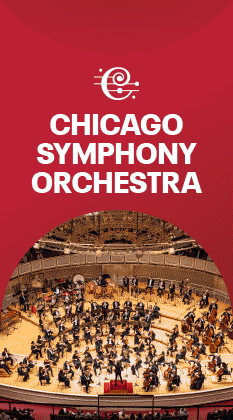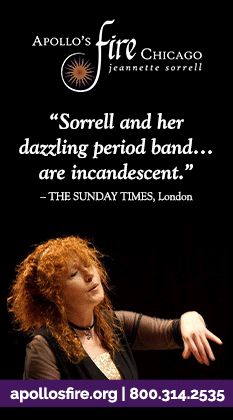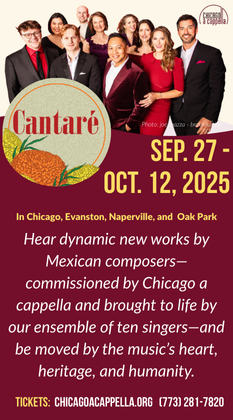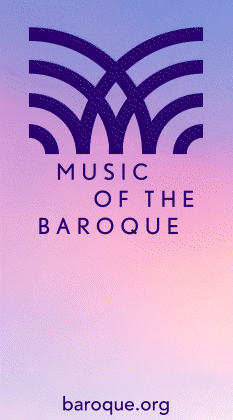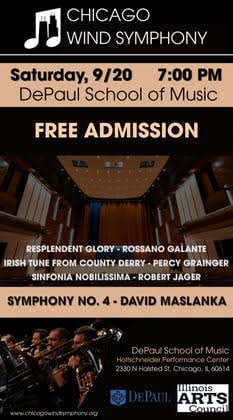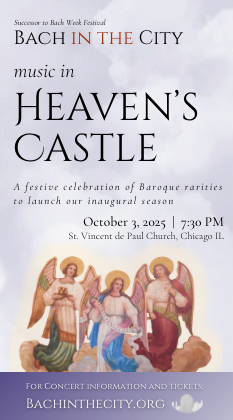Williamson’s Copland sparks CSO program
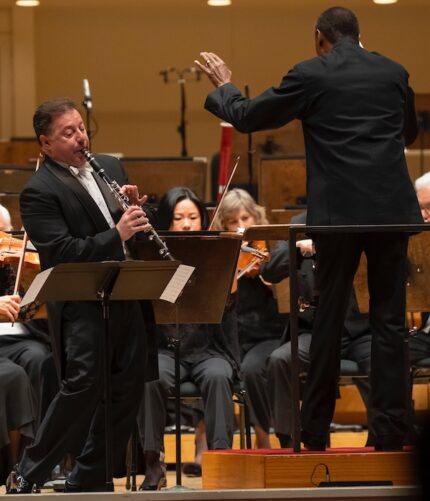
The Chicago Symphony Orchestra is offering a kinda-sorta American program this week—a homegrown concerto framed by two works composed by Europeans who were inspired by American myths and music.
The main interest Thursday came with the evening’s centerpiece, Aaron Copland’s Clarinet Concerto. Any opportunity to hear the CSO’s nonpareil principal clarinetist in the spotlight should be grabbed with both hands and Stephen Williamson did not disappoint as solo protagonist.
Commissioned by Benny Goodman, the concerto was premiered by the famous jazz clarinetist in 1950 in a live radio broadcast with the NBC Symphony Orchestra led by Fritz Reiner—who would become CSO music director three years later.
Copland’s Clarinet Concerto is dizzyingly eclectic in its grab-bag of styles from the composer’s patented open-plains lyricism to the mashup of jazz and populist Braziliana in the finale. Yet despite its engaging qualities, the concerto remains a frustratingly unsatisfactory work. One can’t help feeling that the 17-minute piece feels like two-thirds of a concerto that sorely needs a substantial opening movement to give it more heft.
Since taking the principal clarinet chair in 2011, Williamson had been a boon for CSO concertgoers, making one lean forward for every clarinet solo in anticipation of hearing something individual and thought-provoking.
Williamson’s entrance in the opening movement (“Slowly and expressively”) was ideally judged, easing in with a mellow tone and relaxed style. He brought spacious phrasing to the central cadenza, deftly accelerating into the pre-echo of the dance theme, and invested the jazzy finale with bristling rhythmic vitality. His sterling solo work made one regret the concerto’s brevity even more.
Making his CSO subscription debut, Thomas Wilkins led the reduced forces (strings, harp and piano) in a capable accompaniment, but greater snap and incisiveness would have better matched Williamson’s superb playing. The piano, especially, had a strange lack of presence and impact.
The concert began with a suite from Samuel Coleridge- Taylor’s Hiawatha ballet music. Inspired by Longfellow’s The Song of Hiawatha, the British composer wrote several works based on the American epic poem.
One was a projected ballet, which Coleridge-Taylor’s early death at age 37 left unfinished and in piano score. The four excerpts performed Thursday night were heard in Percy Fletcher’s orchestrations. (Fletcher may well have filled in and “completed” the music as well.)
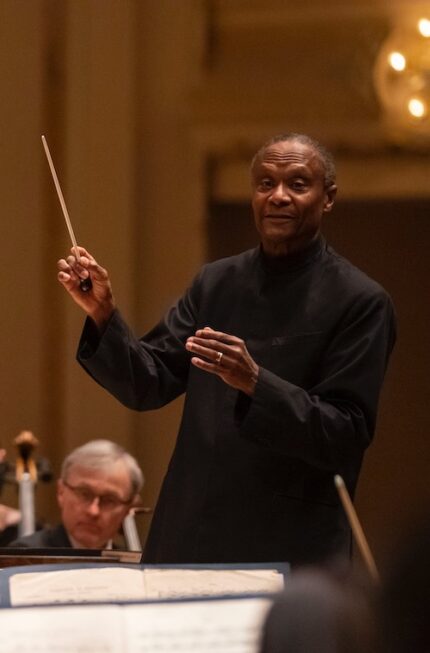
If the score is of dubious provenance, the music is attractive enough in its light ballet style and Wilkins and colleagues brought out its piquant charms effectively in this CSO premiere. The “Marriage Feast” was lively and grandiose and the brief “Conjurer’s Dance” closed the ersatz suite with a dash of orchestral brilliance.
The most substantial item is “The Wooing,” a lovely lyrical idyll which builds to a resounding climax before ending with a reprise of the gentle opening music. Assistant principal flutist Yevgeny Faniuk provided bucolic and atmospheric contributions in his avian solos.
Dvořák’s not unfamiliar Symphony No. 9 closed the short program.
For all its popularity and “New World” influences, the Czech composer’s final symphony is a tense and dark work, decidedly bittersweet in its lyricism, and full of shadows with a desperate, driven quality.
Wilkins directed a sturdy, straightforward reading that was effective if rather superficial. In a work with ample interpretive opportunities, the performance felt content to glide on the surface of the score rather than explore much in the way of dynamic nuance or expressive depths.
In the celebrated Largo, Scott Hostetler offered a fluent yet bland English horn solo that seemed of a piece with the overall performance. The finale came off best with the CSO brass adding some much-needed punch and vitality.
The program will be repeated 8 p.m. Saturday and 3 p.m. Sunday. cso.org
Posted in Uncategorized
